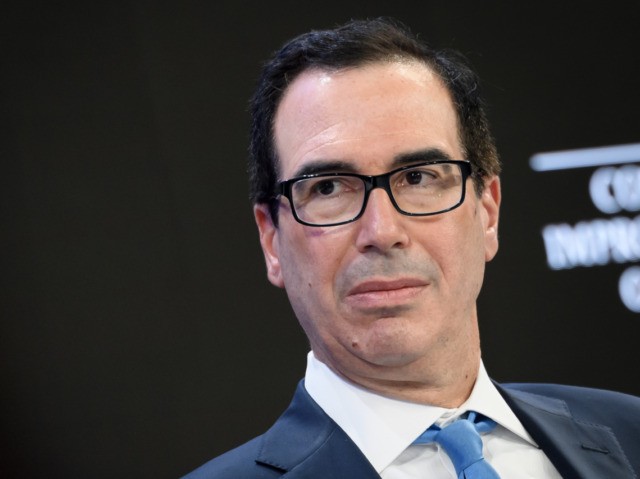United States treasury boss Steve Mnuchin has expressed the importance of the United Kingdom and the U.S. signing a good trade deal after Brexit after he met his UK counterpart Saturday morning.
Mnuchin said he was “quite optimistic” about the future of UK-U.S. trade at during a session at the Royal Institute of International Affairs’ Chatham House base in London on Saturday. The U.S. treasury chief had met with UK chancellor of the exchequer Sajid Javid in the morning, part of developing discussions between the two nations about a future trade deal both nations want to conclude promptly after Britain leaves the European Union next week.
In terms of a timetable, Mnuchin talked up an eleven-month turnaround — unusually fast for such global treaties, but one that may be possible given the likely scope of back-room activity already ongoing on the deal, and the enthusiasm of the governments of both nations to get it signed.
The treasury boss said the deal would underline a “very important relationship”, cited the importance of Britain being “at the top of the list” to President Trump, and said: “We’ve said that our goal — your goal — is trying to get both of these trade agreements done this year. And I think from a U.S. standpoint we are prepared to dedicate a lot of resources.”
View this post on Instagram
Good seeing @sajidjavidmp to discuss strategic Relationship #trade #brexit #sanctions
Mnuchin’s remarks on Saturday follow a week of intense happy talk by both British and U.S. leaders over a trade deal, which has come to major prominence during the Davos globalist economics summit, amplified by the looming Brexit date for Britain to leave the European Union. While the UK wishes to cut trade deals with both the U.S. and Europe, the EU appears to have more to lose from making a good, quick agreement, as forcing a difficult Brexit process is essential for the bloc to discourage other members from considering leaving.
If Britain can cut a fast deal with the United States, however, it puts Brussels in the equally difficult position of being left behind — so London and Washington working well together will likely encourage the EU to give more ground.
Speaking at Davos, President Trump himself said Britain under Boris Johnson will “come out great” and that the U.S. is looking forward to “negotiating a tremendous new deal with the United Kingdom.”
For their part, senior British officials are reportedly taking a “hell for leather” approach to the deal, absolutely prioritising the deal alongside others for Australia and New Zealand, one-time major trading partners for the UK which were cut adrift when the country was taken into the European Union’s predecessor in 1973 by then Prime Minister Edward Heath.

COMMENTS
Please let us know if you're having issues with commenting.